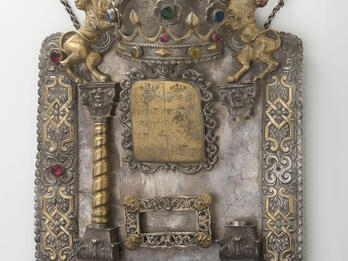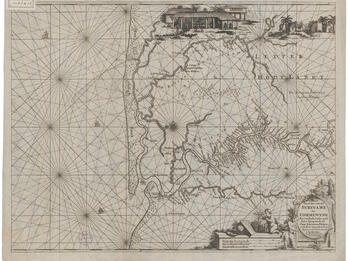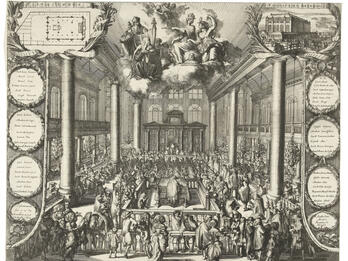Avkat rokhel (Powder of the Merchant)
Hear, ye mountains, the controversy of the Lord, and ye strong foundations of the earth [see Micah 6:2] the lament of my beloved for his vineyard. My beloved had a vineyard in a very fruitful hill (Isaiah 5:7); for when the Almighty saw the affliction of His people Israel, who for almost fifteen hundred years have been expelled from their land, [ . . . ] He remembered unto them the covenant made with their ancestors and restored their captivity, and gathered them together from the ends of the earth, plucking one from a city and two from a family (Jeremiah 3:14)—to the beautiful land [see Daniel 11:16, 41], and they have settled in the city of Safed. [ . . . ] Its administrators and leaders conducted themselves in a fitting manner, carrying the burden of the poor and the needy and those studying the Torah. For the poor were exempted from payment of the poll tax, which was taken instead from those of some means, [ . . . ] but from the Torah scholars they would take nothing, except for those in possession of a little money, up to one-half of the usual sum. This applied exclusively to the poll tax, whereas in regard to other taxes and imposts [on produce of the land] it never entered anyone’s mind to take money from one who was virtually a full-time student of Torah, and whose worldly business was only of an incidental nature. [ . . . ]
Thus the vineyard of the Lord, the House of Israel, was fair and pleasant, [ . . . ] the heads of the Torah academies and their pupils were learning on their patch without adversary or hindrance [see 1 Kings 5:18]—they did not hear the sound of the oppressor. The elite of the people of the God of Abraham [see Psalms 47:10] dwelling outside the Holy Land fenced in the vineyard and stripped it of stones, by sustaining [the students] with bread, and they planted it with the choicest vines [see Isaiah 5:2]. [ . . . ] From there Torah and light would issue forth to all the distant outreaches of the diaspora. [ . . . ]
However, it came to pass that, on account of the sins of the generation, Satan grew envious [of our happy state], and put into the mind of Judah Aberlin to go up to the beautiful land as well, and he designed stratagems with a view to devouring and destroying the wall of the Torah, to break its yoke off him [see Genesis 27:40], so that the reverence for talmudic scholars should no longer be upon the wealthy, but on the contrary, that talmudic scholars should revere the wealthy! [Aberlin imposed a poll-tax upon rabbis.] In addition, he wished to lighten the burden of levies and taxes [of the produce of the land] from upon himself, and to impose it instead upon the poor and needy, and to strip their skin off them. [ . . . ]
When he came to the Holy Land, he assembled those appointed in charge of the various communities and told them that it was appropriate for the name of every individual who is considered a Jew to be entered in the poll tax register—paupers and passing travelers alike—no one’s name should be missing [see Isaiah 40:26]. However, those in charge of the communities replied, “Let us ask the masters of Torah and consult with them, in accordance with our custom.” He retorted, “If you do so, it is obvious that they will protest against the idea—therefore carry out this matter hastily, do not lose resolve or be terrified of them [see Deuteronomy 20:3], for what can they do to you?”
By this means he enticed them into signing their agreement to his plans, [ . . . ] and all the poor and needy people were entered in the register—even those paupers who obtained their means of support from charity; and likewise all those studying the Torah—the poor and the weak, from fifteen years of age upward, even those who did not have the means to sustain themselves for a single hour without the financial support they received from the diaspora. [ . . . ] They would seize their means of livelihood from their very mouths (so to speak) to pay the poll tax. Consequently, the outcry was great in the camp of the Hebrews [see 1 Samuel 4:6].
The Ban Signed by the Rabbis in Connection with the Above Matter
Seeing that it has entered the mind of the community heads here in Safed, may it be rebuilt and established speedily in our days, to impose a tax on the affluent Torah scholars—from whom they have begun to collect these duties—we informed them of the severity of the matter, that they are violating a prohibition of the Torah, Prophets, and the Hagiographa, and that they are transgressing the view of all the sages who have arisen since the days of Moses our Teacher, peace be upon him, until today. They have, as a result, listened to our voices and refrained from claiming [the money] from them, and returned it to those from whom they had already collected. Now, in order to prevent this matter [ . . . ] we curse and execrate, with the force of the ban that Barak imposed upon Meroz [see Judges 5:23], with four hundred ram horns, and with the curse that Elisha placed upon the young lads [see 2 Kings 2:24], and with the ban of excommunication that Ezra proclaimed against the Samaritans by means of three hundred Torah scrolls, three hundred ram horns, and three hundred young children [see Pirke de R. Eliezer 38], and with the ban of excommunication imposed by R. Judah ben Ezekiel upon that slave who called him the son of Sheviskal [“a glutton”; see b. Kiddushin 70a]. May all these curses, bans, and excommunications fall upon any son of Israel who attempts to collect any taxes from any Torah scholar who studies Torah on a full-time basis and whose worldly occupation is merely incidental. [ . . . ] As for anyone transgressing this, may he be cursed by day, cursed by night, cursed when he lies down to sleep, cursed when he rises up, cursed in the city, cursed in the field, cursed when he comes in, cursed when he goes out [see Deuteronomy 28:17, 19] [ . . . ] [until he is destroyed] from off the face of the earth. He alone shall be caught in his sin, and all Israel shall be free of blame. [ . . . ]
Joseph Karo
Israel ben Meir di Curiel
Moses ben Joseph Trani, may he be remembered for eternal life
Credits
Published in: The Posen Library of Jewish Culture and Civilization, vol. 5.





